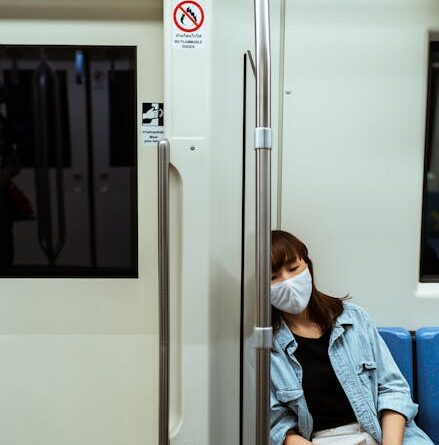How to Get Quality Sleep When Traveling
How to Get Quality Sleep When Traveling
Traveling can be an exhilarating experience, but it often comes with the downside of disrupted sleep. Whether you’re flying across time zones or spending nights in unfamiliar hotel rooms, getting quality sleep can be a challenge. According to the National Sleep Foundation, 65% of Americans report experiencing sleep problems when they travel. In this blog post, we will explore practical tips and strategies for achieving quality sleep while on the go.
Understanding the Challenges of Sleep While Traveling
Before diving into solutions, it’s essential to understand why sleep becomes difficult when traveling. The primary factors include:
Time Zone Changes and Jet Lag
Jet lag occurs when your body’s internal clock is out of sync with the local time zone. Symptoms include fatigue, difficulty concentrating, and disrupted sleep patterns. Jet lag can last for several days, depending on the number of time zones crossed.
Unfamiliar Sleeping Environments
Hotels, hostels, or even friend’s guest rooms can be quite different from your home environment. Unfamiliar sounds, smells, and bedding can make it difficult to relax and fall asleep.
Irregular Schedules and Activities
Traveling often involves irregular schedules, late nights, and an increase in social activities. Such changes can interfere with your regular sleep routine, making it harder to get quality rest.
Practical Tips for Better Sleep While Traveling
Despite these challenges, there are actionable steps you can take to improve your sleep quality when traveling.
Adjust to the New Time Zone Gradually
To minimize jet lag, start adjusting your sleep schedule a few days before you travel. If you’re traveling east, go to bed and wake up an hour earlier each day. If traveling west, do the opposite. This gradual adjustment helps sync your body’s internal clock with the new time zone.
Create a Sleep-Friendly Environment
Bring familiar items from home, such as your pillow or a favorite blanket, to make your sleeping environment more comfortable. Use earplugs and a sleep mask to block out noise and light. If the room is too noisy, consider using a white noise app to drown out disturbances.
Stay Hydrated and Watch Your Diet
Dehydration can worsen jet lag and make you feel more tired. Drink plenty of water before, during, and after your flight. Avoid caffeine and alcohol close to bedtime, as they can interfere with your sleep cycle. Instead, opt for a light, healthy snack if you’re hungry before bed.
Maintain a Consistent Sleep Routine
Try to go to bed and wake up at the same time each day, even while traveling. Consistency helps regulate your body’s internal clock. Engage in relaxing activities before bed, such as reading or taking a warm bath, to signal to your body that it’s time to sleep.
Exercise Regularly
Physical activity can help you fall asleep faster and enjoy deeper sleep. Aim for at least 30 minutes of moderate exercise most days of the week. Avoid vigorous exercise close to bedtime, as it can have a stimulating effect.
Special Considerations for Different Types of Travel
Different modes of travel come with unique challenges and solutions.
Long-Haul Flights
Long flights can be particularly challenging for sleep. Here are some tips:
- Choose the Right Seat: Select a window seat to rest your head and avoid disturbances from fellow passengers.
- Pack a Travel Pillow and Blanket: These items can make a significant difference in your comfort level during the flight.
- Use Sleep Aids Wisely: Over-the-counter sleep aids or melatonin supplements can help, but consult with a healthcare provider first.
Road Trips
For road trips, comfort and safety are paramount:
- Take Frequent Breaks: Stop every few hours to stretch and rest. This helps reduce fatigue and improves alertness.
- Plan Your Stops: Choose accommodations that offer a quiet and comfortable sleeping environment.
- Stay Safe: Never drive when you’re too tired. Share driving responsibilities if possible.
Business Travel
Business trips often come with tight schedules and added stress:
- Prioritize Sleep: Schedule meetings and activities in a way that allows for sufficient rest.
- Manage Stress: Practice stress-reduction techniques such as deep breathing, meditation, or yoga.
- Stay Organized: Keep your travel itinerary and work commitments well-organized to reduce anxiety.
Utilizing Technology for Better Sleep
Modern technology can be both a boon and a bane for sleep. Here’s how to leverage it effectively:
Sleep Tracking Apps
Apps like Sleep Cycle or Fitbit can help monitor your sleep patterns and provide insights into how to improve your sleep quality. These apps can also gently wake you up during your lightest sleep phase, making you feel more refreshed.
White Noise Machines
White noise machines or apps can help mask disruptive sounds, allowing you to fall asleep more easily. Popular options include the Marpac Dohm and apps like White Noise Lite.
Smart Lighting
Smart lights like Philips Hue can simulate natural light patterns, helping to regulate your circadian rhythm. Set them to gradually dim in the evening and brighten in the morning to mimic sunrise and sunset.
Conclusion
Getting quality sleep while traveling may seem challenging, but with the right strategies, it’s entirely achievable. By understanding the factors that disrupt your sleep and taking proactive steps to mitigate them, you can enjoy restful nights and more enjoyable travel experiences. Remember to adjust to new time zones gradually, create a sleep-friendly environment, maintain a consistent sleep routine, and utilize technology wisely. Safe travels and sweet dreams!

